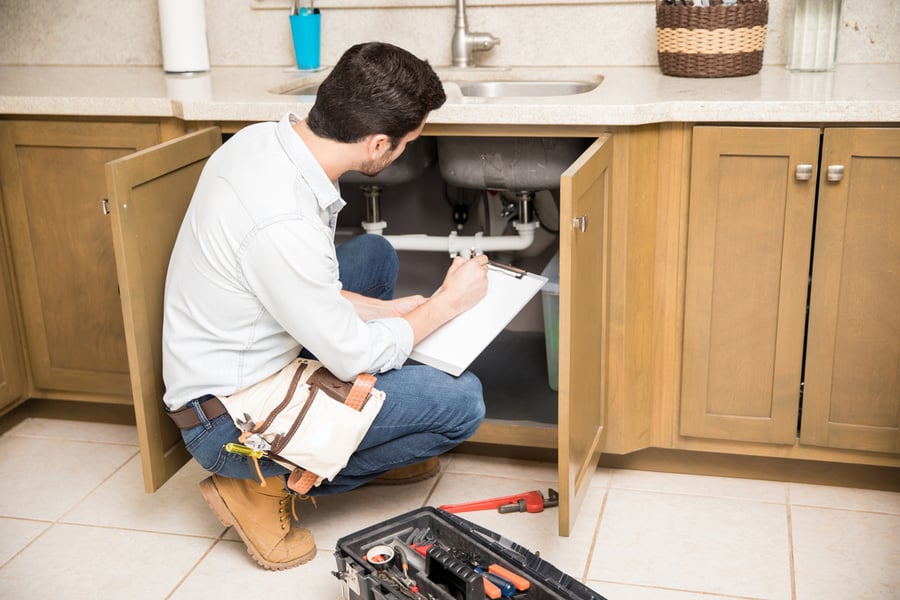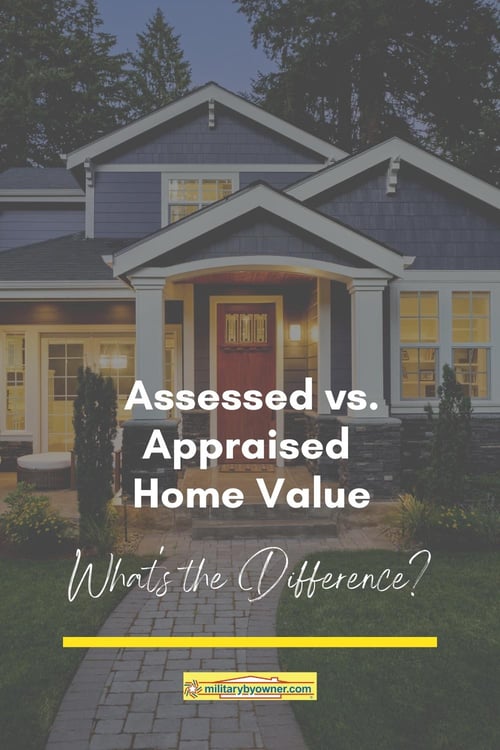Assessed vs. Appraised Home Value: What's the Difference?
Military home sellers often face a lot of confusion around assessed and appraisal values when planning their home selling process. It's a common issue because they both affect your home’s value but in different ways.
Simply stated, assessed values are all about how your local governments tax your property to earn income to provide community services, while appraised values are what mortgage lenders use as “insurance” before lending buyers money to purchase your home.
We dive into more details so you know how to prepare for your home sale and work with future home buyers to negotiate the best deal. First, watch Karen Hall, owner and co-founder of Foxtrot Real Estate in Alexandria, Virginia, share her expert insight while explaining the differences between assessed and appraised values in the short video below.
Assessed Value
Think of your house’s assessed value as the way city and county governments measure how to tax your property—NOT how much you could sell your house for in the future. Your local tax officials follow guidelines and laws that spell out how homes are assessed and incorporate your community’s tax rate details. Some jurisdictions send assessors to see the property; others do not.
Assessors rely on multiple years of property data, home inspections, and sometimes comparative market analysis to complete their findings. Once finished, they calculate the property’s assessed value. Ultimately, local governments use these property taxes to pay for schools, public safety, and other community resources.
Although the assessed value doesn’t directly affect your home sale process, it is a consideration for your buyers. They’ll have to consider the property taxes in their home buying budget. If your property taxes are inaccurately assessed too high, it could add another roadblock for your buying pool.
Speaking of taxes, don’t forget about The Effect of Capital Gain Tax Exclusions on Military Home Sellers.
 Photo from iStockphoto.com/Joe Hendrickson
Photo from iStockphoto.com/Joe Hendrickson
Appraised Value
Appraised values directly affect a home sale because they’re used to determine your home’s actual value. After your property goes under contract, your buyer’s lender will request an appraisal to see what the home is worth in the current market so that they don’t loan the buyer more than the property is worth.
The appraisal is part of the mortgage underwriting process and far more in-depth than an assessment, and the findings ultimately affect the mortgage amount and sale price. Remember, the appraised value is insurance that the lender is making a good investment. It also helps the buyers and sellers get a clear picture of the property’s value so they can negotiate the purchase price.
The Appraisal Process
Highly trained and licensed appraisers usually spend a couple of days to about a week to complete the appraisal. It depends on how busy your market is and your location. Remember that if the appraiser is from a VA or FHA lender, they’ll have more criteria to check.
Before arriving, the appraiser does homework with the property’s online data, but they will also take into account the location, the house’s general condition, square footage (including the number of bedrooms and bathrooms), special features, and nearby comparable homes sold within 180 days. They’ll also take into account the conditions of the following:
- Foundation
- Basement
- Appliances
- HVAC system
- Additions and renovations
If you plan to sell your home For Sale by Owner, consider hiring an appraiser as part of your pricing strategy. Do You Need an Appraiser for Your Home Sale? will help you decide.
 Photo from iStockphoto.com/Antonio_Diaz
Photo from iStockphoto.com/Antonio_Diaz
What Happens After the Appraisal?
If your appraisal meets or exceeds your asking price, you’re in good shape, and everyone can move toward closing. But what are the options if your house appraises under the contract price?
- You can ask for another appraisal, especially if you find a discrepancy, like incorrect square footage, in your report.
- You can ask your buyers to make up the difference between the loan amount and the purchase price.
- You can renegotiate the purchase price with the buyer.
- Your buyer may have an appraisal contingency in the contract, which allows them to walk away from the deal with their earnest money.
Why Did Your House Appraise Low?
Knowing why your house appraised low will help you decide how to proceed. If you're using the services of a real estate agent, they can be an important resource in this situation.
Scour the appraisal report, look for inaccuracies, and also compare the details to comparable homes that have closed recently. These are some of the criteria the appraiser researches, and they need accurate facts to reflect your home’s true value, especially in competitive markets.
Low appraisal indicators:
- Incorrect living area measurements
- Wrong bathroom and bedroom counts
- Dissimilar location comparables
- Home improvements not accounted for, like a finished basement
- An inexperienced appraiser who doesn't understand local trends
- Excessive foreclosure or short sales in the neighborhood
- Inflated prices from multiple offers
- Overpriced home
Now that you’ve seen the differences between assessed and appraised values side by side, it’s simple to see how they fit into your home selling plan. Just remember, assessed values equal property taxes, while appraised values involve mortgage lenders and buyers.
MilitarybyOwner makes home selling easy to understand, whether you’re working with a real estate agent or planning on a For Sale By Owner. Download our free home selling guide below!






